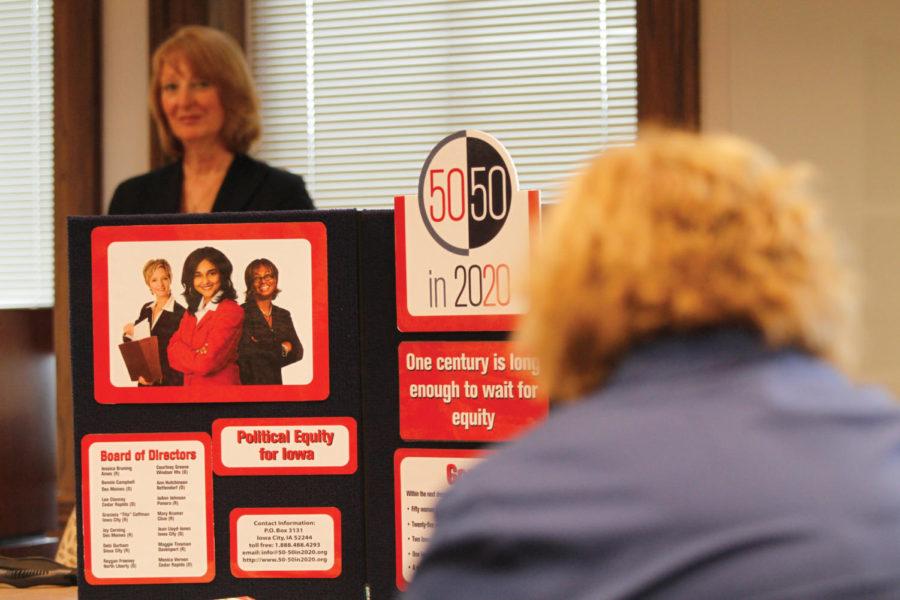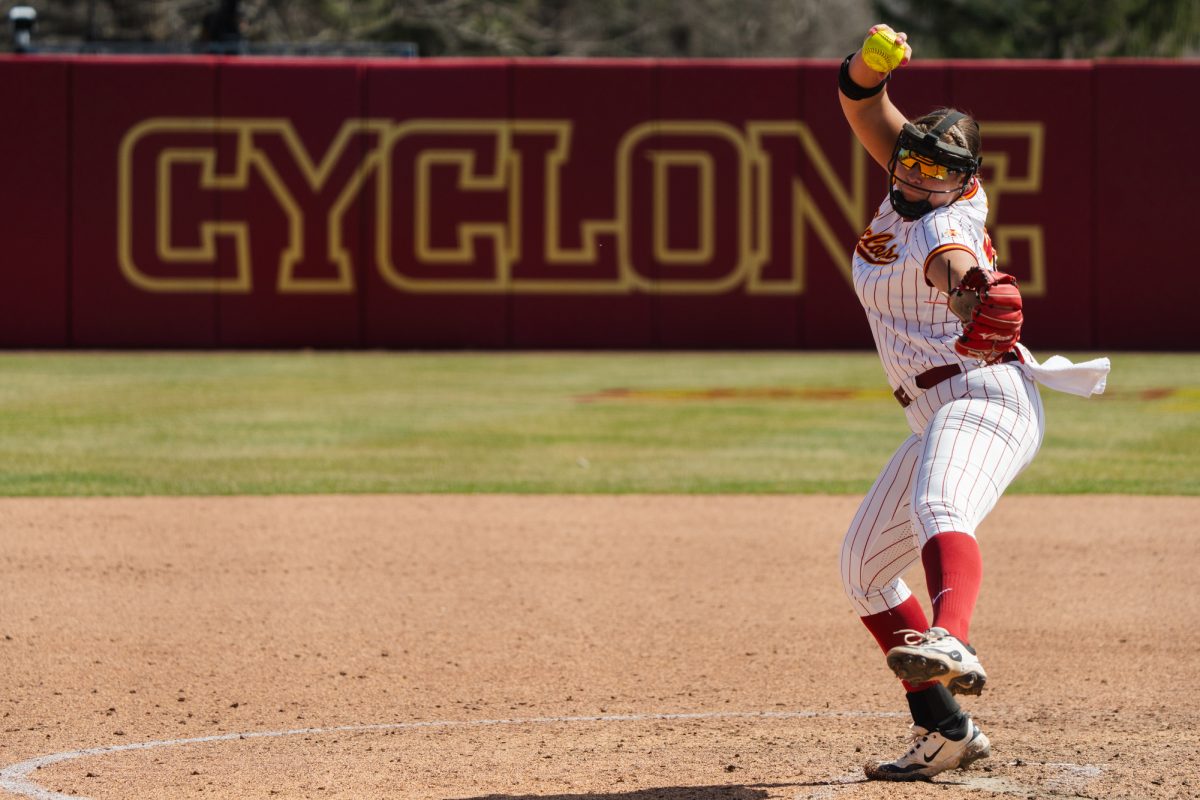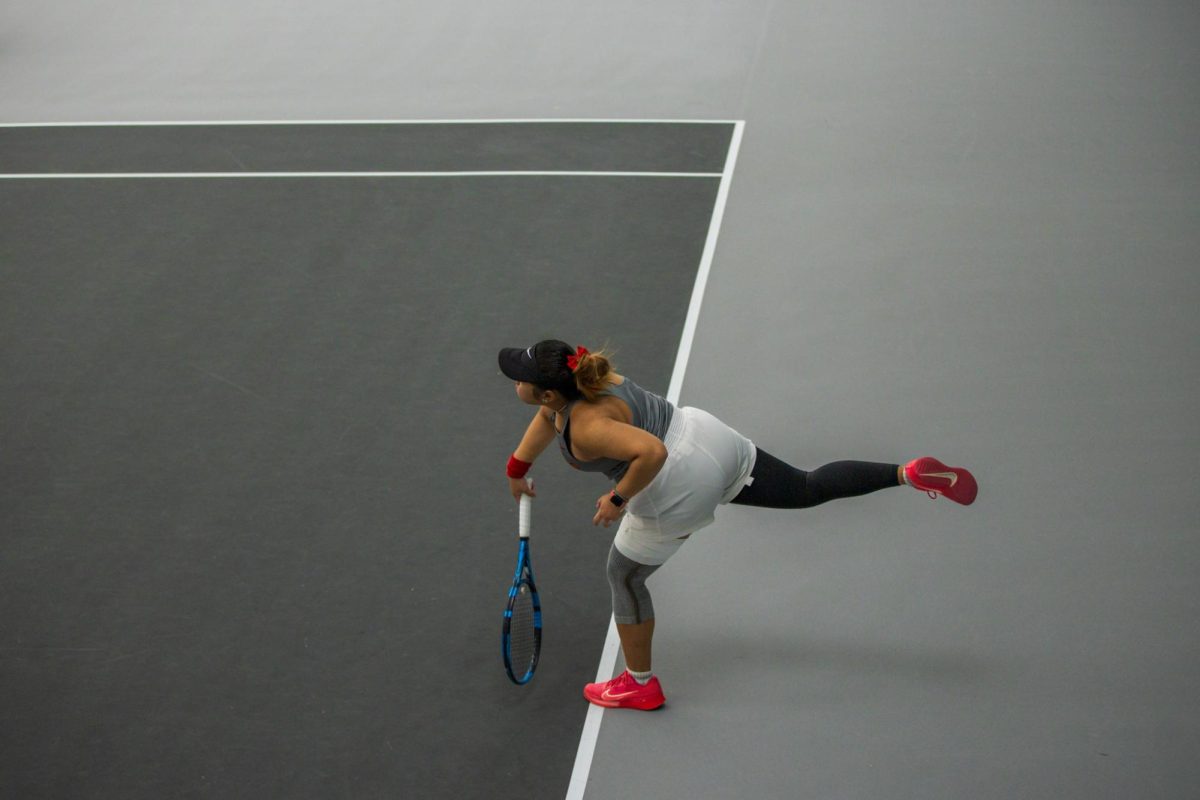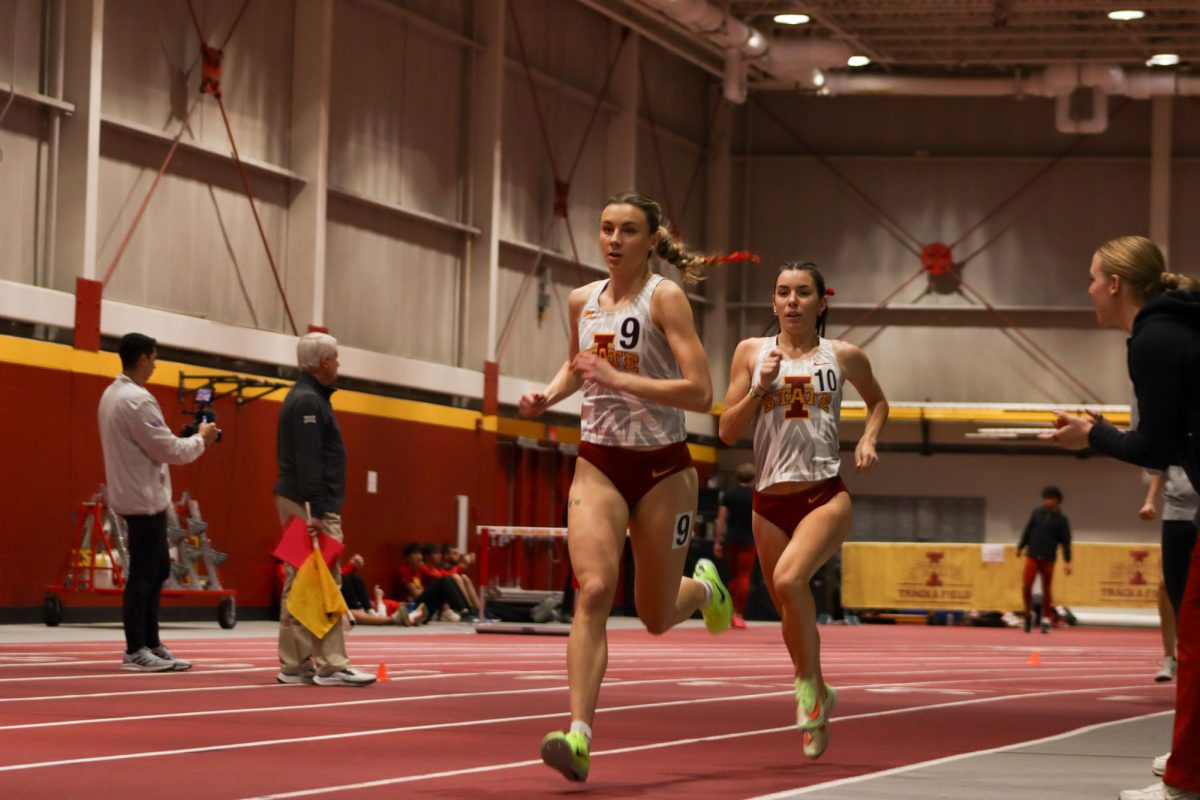Bipartisan group seeks political equity
Photo: Ryan Damman/Iowa State Daily
Bonnie Campbell takes questions during a 50/50 in 2020 event Wednesday, Sept. 22, in Catt Hall. The organization’s mission is to achieve political equity for Iowa women. Their goal is to fill half Iowa’s legislature with women by 2020. Photo: Ryan Damman/Iowa State Daily
September 22, 2010
A bipartisan organization, called 50/50 by 2020, announced its goals Wednesday in Catt Hall.
The organization was created by Maggie Tinsman, the first woman elected to the Scott County Board of Supervisors, and Jean-Lloyd Jones, who served a total of 16 years in the Iowa House and Senate.
Bonnie Campbell, former Attorney General, said that the group was created to promote political gender equity in Iowa.
Aug. 18 of 2010 marked the 90th anniversary of the 19th Amendment to the Constitution.
“One century is long enough to wait for equity,” Campbell said.
The organization has a set list of goals, including electing 50 women to the Iowa House of Representatives, 25 women to the Iowa Senate, 2 women to the U.S. House of representatives, 1 woman to the Senate and a woman governor of Iowa.
A timeline from the group has the first woman governor elected in 2014.
Dianne Bystrom, director of the Catt Center for Women and Politics, mentioned that Iowa and Mississippi are the only two states who have never elected a woman as governor or to the U.S. House or Senate.
She also pointed out that even though women make up 53 percent of Iowa voters, only 22.6 percent of the Iowa Legislator is female.
“This is more than just numbers,” Campbell said. “We do see issues through a different lens.”
Campbell said women tend to spend more time listening to constituents and have a more pragmatic approach to balancing budgets.
The organization will be hosting a three-day coaching and training seminar in order to teach women to handle giving speeches, question and answer sessions, and forming a campaign committee, Campbell said.
Bystrom listed some factors that prevent Iowa women from running in and winning political races, such as living in urban areas and a high number of incumbents.
“When you have the factors you can’t change … one of the things a state can do is have one of these programs,” Bystrom said.







